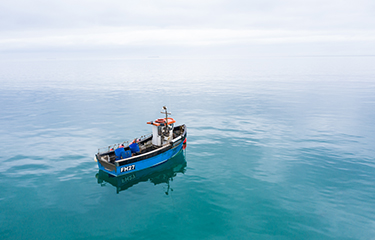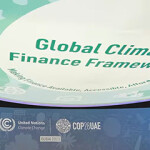Planet Tracker launches seafood supply chain database to expose companies' sustainability risks

London, U.K.-based nonprofit financial think tank Planet Tracker has launched a new database listing seafood supply chain companies. The database allows for comparison of listed companies' exposure to overfishing, illegal fishing, and sustainability risks.
Planet Tracker said its database provides better transparency to investors and lenders, allowing them to more accurately assess the risk and opportunity of an investment in a company based on exposure indicators.
“The absence of data is often blamed on the suppliers’ inability to provide it and the associated costs of retrieving it, but there are potential financial benefits associated with increased disclosure that companies must not overlook,” Planet Tracker Head of Oceans Programme François Mosnier said.
The lack of transparency can be seen in a list of the top 100 largest seafood companies. Currently, and according to a recent Planet Tracker report, 8 percent of those companies disclose their exact seafood investments by species.
The database initially includes 100 corporations from the USD 1.8 trillion (EUR 1.7 trillion) seafood supply chain, which together have revenue ranging from USD 200 million (EUR 190 million) to USD 15 billion (EUR 14.2 billion). The database includes 50 indicators allowing for the ranking of companies’ exposure to overfishing, illegal fishing, and other ocean sustainability risks. Included in the database is the opportunity for the user to rank and compare companies’ financial health to environmental sustainability.
The database also includes data on all countries or areas of operation with 136 country-level indicators, as well as 750 species of seafood to see what the company catches, farms, processes, or retails.
The goal of the database is to shift global financial flows toward nature-positive outcomes, Mosnier said.
“Companies that do not have granular data in species exposure and harvesting locations are unlikely to be aligned with the Taskforce on Nature-related Financial Disclosures (TNFD) framework. We estimate that over half of the companies we assessed are not TNFD-ready based on the information they fail to provide," he said.
Planet Tracker plans to add more companies to the database in the coming months and include not only upstream activities such as fishing or aquaculture, but also midstream including process, and downstream activities that include wholesale and retail. Future companies can include auxiliary activities such as fish vaccination, construction of engines for fishing vessels, or the manufacture of fish processing machinery.
To support the mission of greater transparency, Planet Tracker has called on financial institutions to ask seafood-exposed companies to disclose the scientific names of the species invested in the exact location of farming, capture, the fishing gear, and farming method used.
Photo courtesy of Nicholas Simon Jackson/Shutterstock





Share